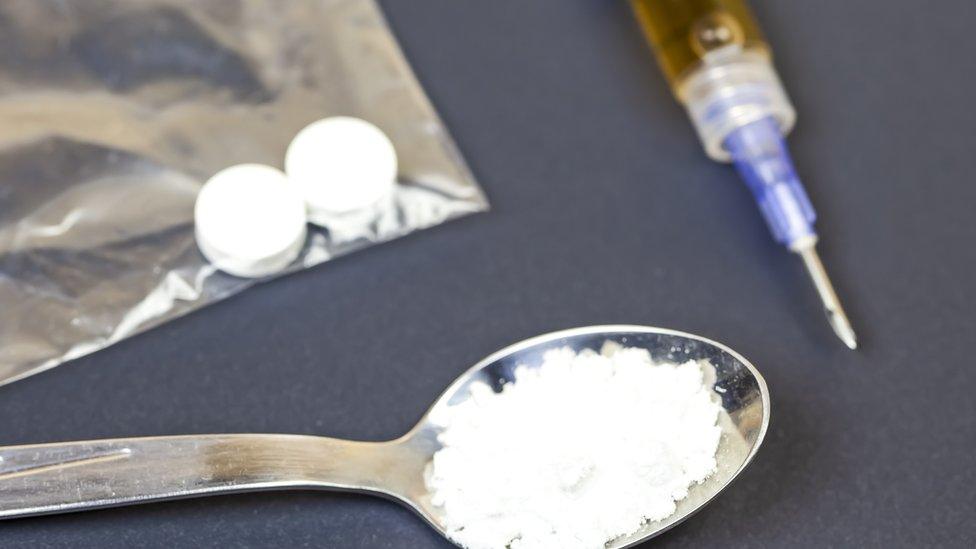Bristol to host first regular drug checking service
- Published
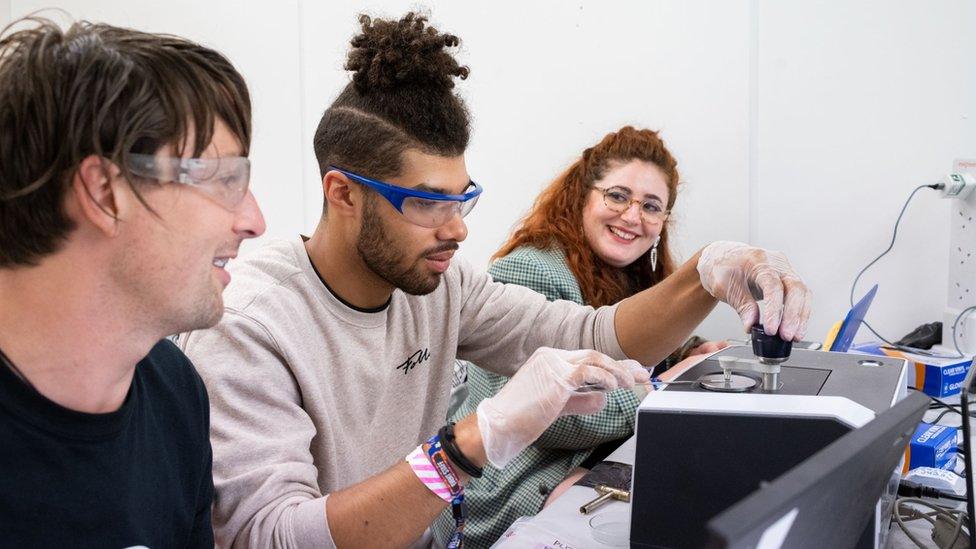
Illegal substances will be tested by the service
A regular drug-checking service, aimed at saving lives, is set to launch for the first time in the UK.
Harm-reduction charity, The Loop, will be offering a monthly drop-in drug testing service combined with health advice in Bristol from Saturday.
Licensed by the Home Office, it will focus on dependent, frequent and problematic use.
It is hoped the new scheme will reduce drug-related medical incidents, overdoses and hospital admissions.
"It could not come at a more important time, the adulteration risks of the illegal drug market have never been greater," said The Loop founder, Prof Fiona Measham.
"After 12 years of preparations, evaluations and negotiations, it is fantastic that we can start the UK's first regular drug checking service.
"With more cities due to follow soon, this is a landmark moment for harm reduction."
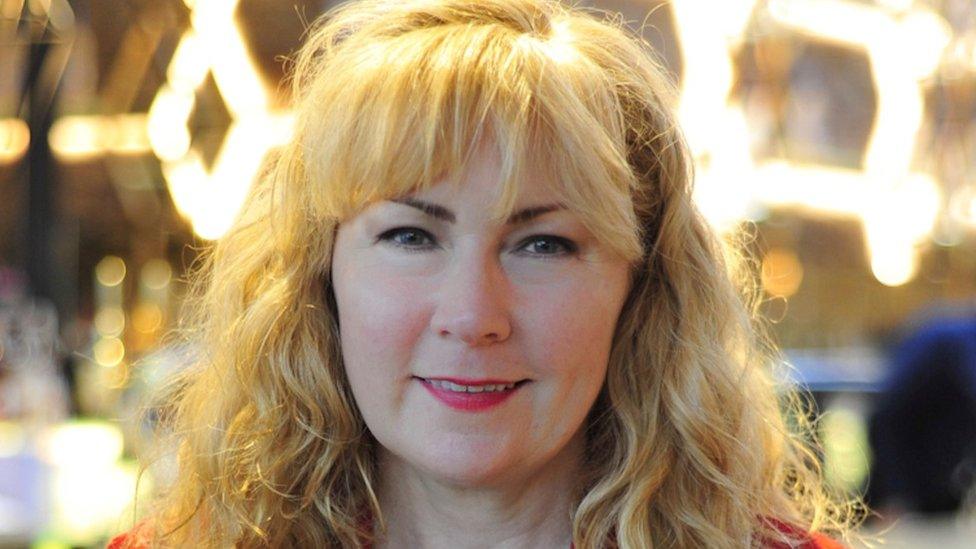
The Loop has been run by its founder, Professor Fiona Measham, for 12 years
The free-to-access service will run over the last weekend of every month, aiming to reduce the consumption of adulterants and contaminated drugs and the risk of poisoning and overdose, while signposting service users to support services.
Service users will hand over substances of concern, which are later destroyed, for laboratory analysis by chemists.
The Loop said it is clear "all drug-use carries risk" but it is important to reduce the harm caused to individuals and wider society.
Funded by Bristol City Council and operated by The Loop's team of professional chemists and health professionals, the new service is a multi-agency partnership together with Bristol Drugs Project (BDP), and the universities of Liverpool and Bath.
Wendy Teasdill welcomes the new drug-testing scheme, but it comes more than a decade too late for her daughter.
On 8 August 2013, 18-year-old Ellie Rowe died after taking ketamine at Boomtown Fair, a festival near Winchester.
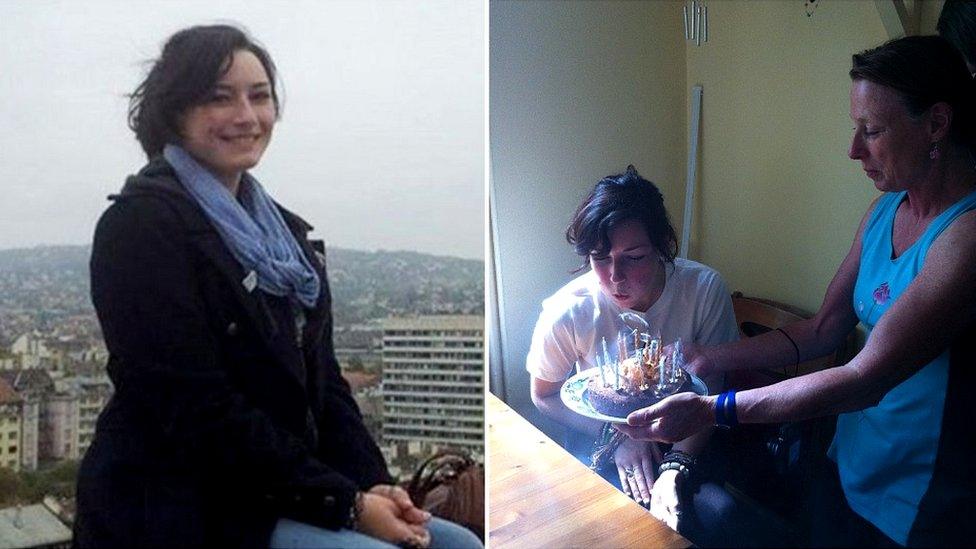
Ellie Rowe died after taking ketamine mixed with alcohol
"Ellie was curious, she loved playing jokes on people, was intelligent and she wanted to learn," said Ms Teasdill.
"Had I said don't take ketamine she'd wouldn't have listened.
"It is normal for young people to not do what their parents tell them to do…I really wish we'd had some informed conversations - I did not know what ketamine was."
Ms Teasdill, from Glastonbury, Somerset, continues to campaign for better drug awareness and education, to prevent other families from going through a similar tragedy.
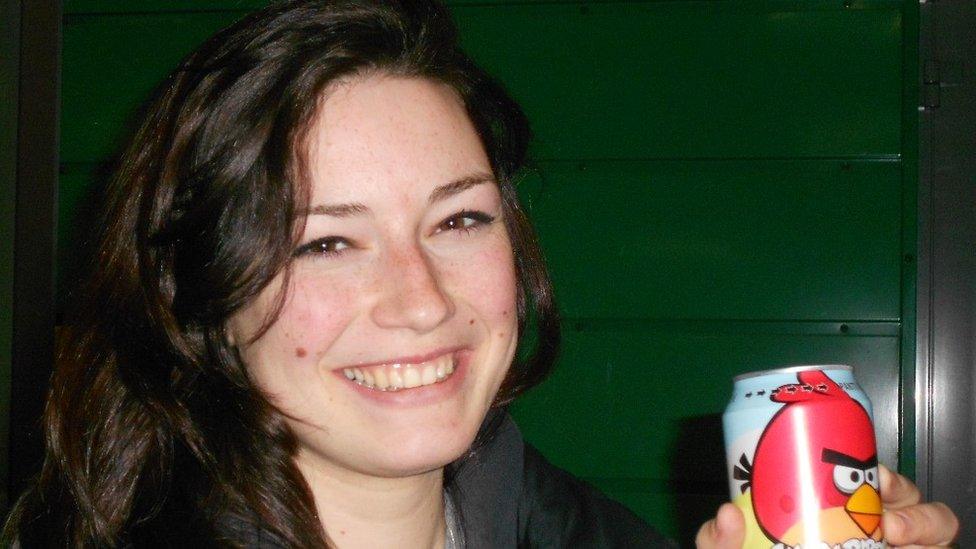
Ms Teasdill said her daughter Ellie was "very kind to people"
"I think this new drug checking service is great, may this be a seed out of which greater flowers will bloom and grow," she added.
"Ellie would still be here if drug checking had been in place when she went to Boomtown. It'll help to save lives."
The Loop, external has previously run pop-up drugs testing sites, including at music festivals.
The launch of the service comes after super-strength street drugs more powerful than heroin were linked to at least 54 deaths in the UK in the past six months.
The deaths are all linked to synthetic opioids called nitazenes, which experts fear are being manufactured in labs and then imported into the UK from China.
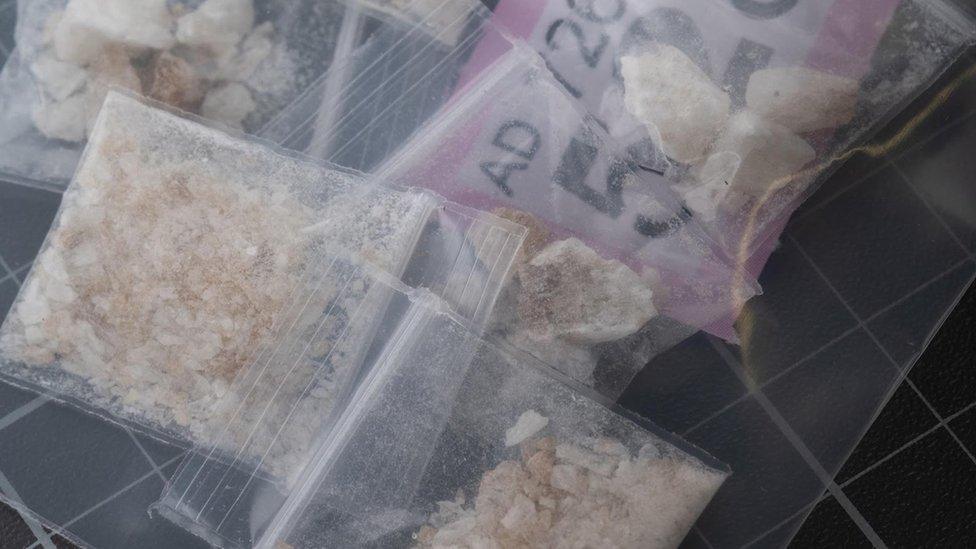
Service users will surrender substances of concern
Bristol City councillor Ellie King, cabinet lead for health, said: "This new initiative is ultimately going to save lives.
"This is about working in partnership to help reduce harm to our communities and empowering people to make safer, more informed choices, with access to drug treatment and further support."
The Bristol Drugs Checking Service aims to reduce harm from dependent and high risk drug-taking and increase understanding of local drug markets.
It will also work with the police and health services, to pass on harm reduction messages to wider drug-using communities.
A Home Office spokesperson said: "We are clear - there is no safe way to take illegal drugs.
"This licence, issued under strict conditions, will mean the most vulnerable people at risk of dying from their addiction can receive guidance and support to help them become drug free, whilst providing vital intelligence to local agencies and police to help respond to dangerous drugs in circulation.
"Our 10-year Drugs Strategy takes a two-pronged approach to tackling drug misuse by relentlessly pursuing the criminal networks supplying them, and building a world-class treatment system to turn people's lives around and prevent more tragic deaths."
In September, The UK's first official consumption room for illegal drugs was approved by authorities in Glasgow.
The facility is backed by the Scottish government as a way to tackle the country's drugs deaths crisis.

Follow BBC West on Facebook, external, X, external and Instagram, external. Send your story ideas to: westinvestigations@bbc.co.uk, external
- Published18 August 2023

- Published11 December 2023
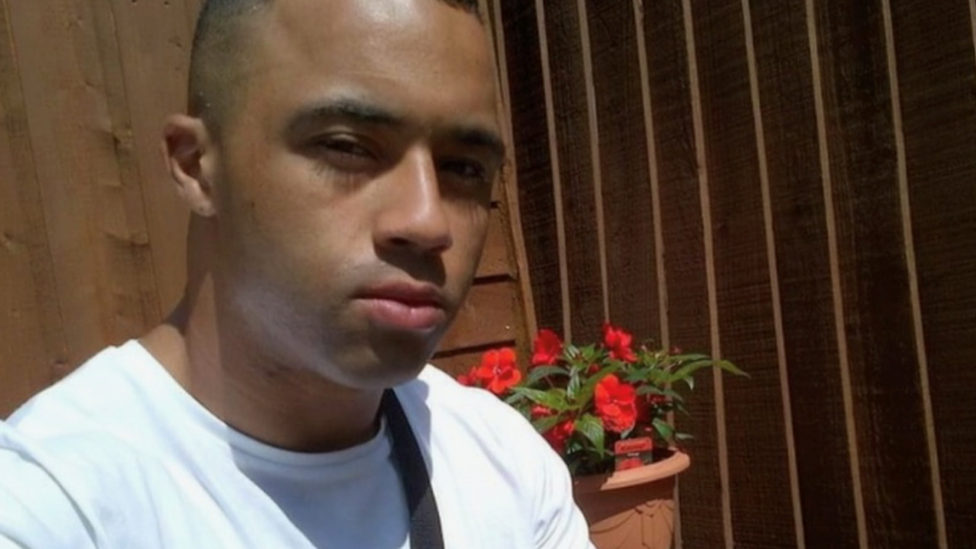
- Published23 November 2023
